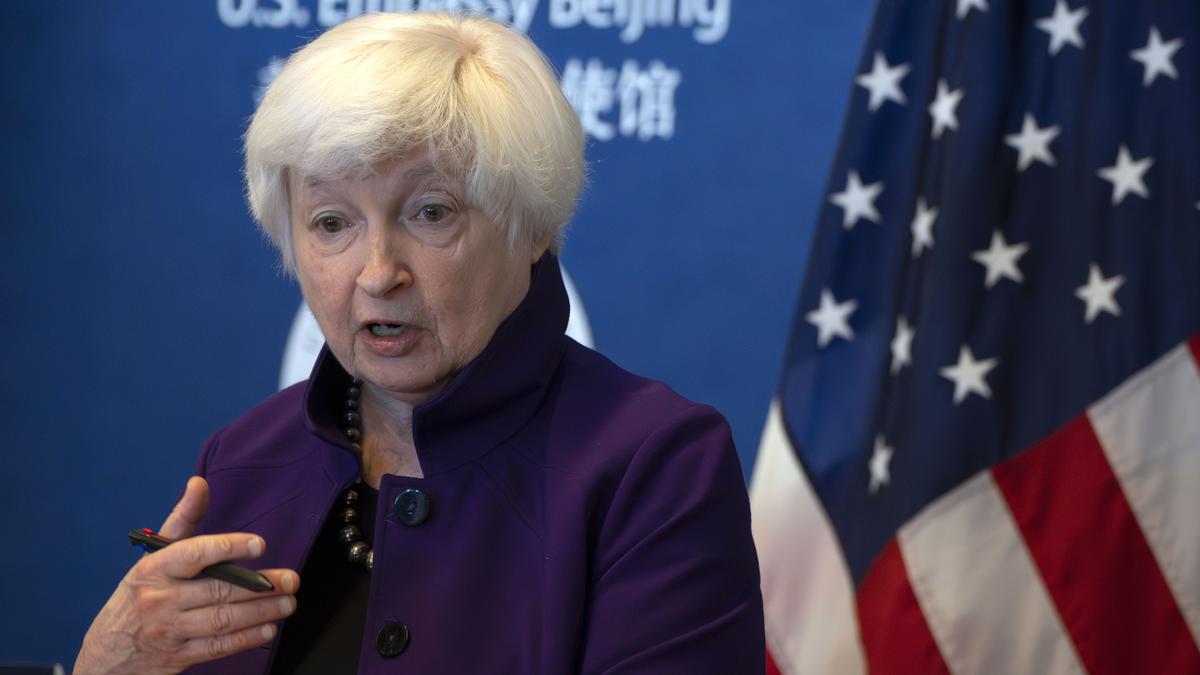
Yellen says Washington might 'respond to unintended consequences' for China due to tech export curbs
The Hindu
Treasury Secretary Janet Yellen said she agreed Washington will listen to Chinese complaints about security-related curbs on U.S. technology exports
Treasury Secretary Janet Yellen on July 9 said she agreed Washington will listen to Chinese complaints about security-related curbs on U.S. technology exports and might “respond to unintended consequences” as she ended a visit to Beijing aimed at reviving strained relations.
Ms. Yellen defended “targeted measures" on trade that China’s leaders complain are aimed at hurting its fledgling tech industries. She said the Biden administration wants to “avoid unnecessary repercussions" but gave no indication of possible changes.
Also read | Yellen criticizes Chinese treatment of U.S. companies during visit to revive relations
Relations between the two biggest economies are at their lowest level in decades due to disputes about technology, security and other irritants. A key Chinese complaint is limits on access to processor chips and other U.S. technology on security grounds that threaten to hamper the ruling Communist Party's development of smartphones, artificial intelligence and other industries.
“We will open up channels so that they can express concerns about our actions, and we can explain and possibly in some situations respond to unintended consequences of our actions,” Ms. Yellen said at a news conference.
Ms. Yellen talked with China’s No. 2 leader, Premier Li Qiang, and other officials during 10 hours of meetings. She had a five-hour session Saturday with her Chinese counterpart, Vice Premier He Lifeng. Treasury officials said in advance there were no plans for her to meet Chinese leader Xi Jinping.
Ms. Yellen received a warm welcome and prominent coverage by the state press, but Chinese officials gave no sign they would change industrial or other policies that Washington and other governments say violate Beijing's free-trade commitments. On Saturday, He said Washington should “adopt a rational and pragmatic attitude" to improve relations.













